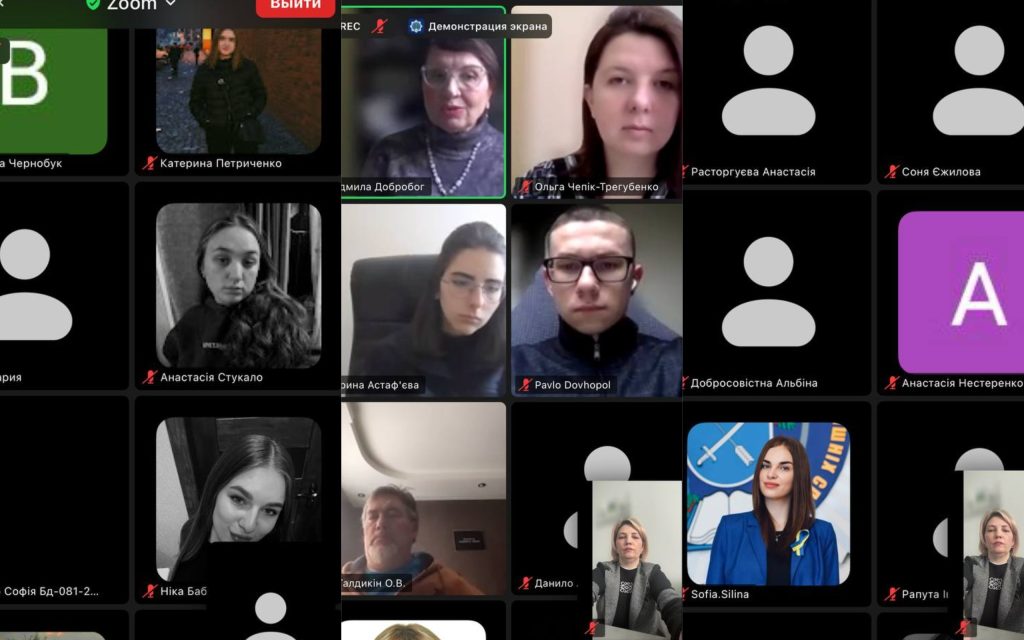The event was organized by the Department of State and Law Theory at the Educational and Scientific Institute of Law and Innovative Education, with the participation of students specializing in 081 “Law” and 262 “Law Enforcement Activities.”

The event began with a tribute to the Heroes of the Heavenly Hundred – participants of the Revolution of Dignity who gave their lives in the fight for democratic values.
The meeting took place as an online conference on the Zoom platform. The report titled “Citizens’ Access to Free Legal Services in the Martial Law Conditions: Theoretical and Practical Issues” was presented by Pavlo DOVHOPOL, a second-year Master’s level student.

During the session, key aspects of citizens’ access to free legal assistance under martial law were discussed. Participants noted that during this period, legal aid plays a critically important role in protecting the rights and freedoms of the population, especially vulnerable groups, such as internally displaced persons, servicemen, their families, and those affected by the armed conflict.
The club leader, Lyudmyla DOBROBOH, emphasized that free legal services under martial law are a fundamental principle of a democratic society and timely, effective legal protection for citizens.
The students showed interest in the topic, discussing issues related to providing free legal aid to military personnel and their families. Faculty members from the Department of State and Law Theory joined the discussion, proposing topics for future scientific reports and familiarizing the participants with the subject matter of theses prepared by higher education seekers under the guidance of department scholars.
The meeting of the scientific club became an important step in the professional development of future lawyers. Such events help to understand key changes in legal processes considering martial law and provide insight into the real aspects of the legal profession.
— 390

